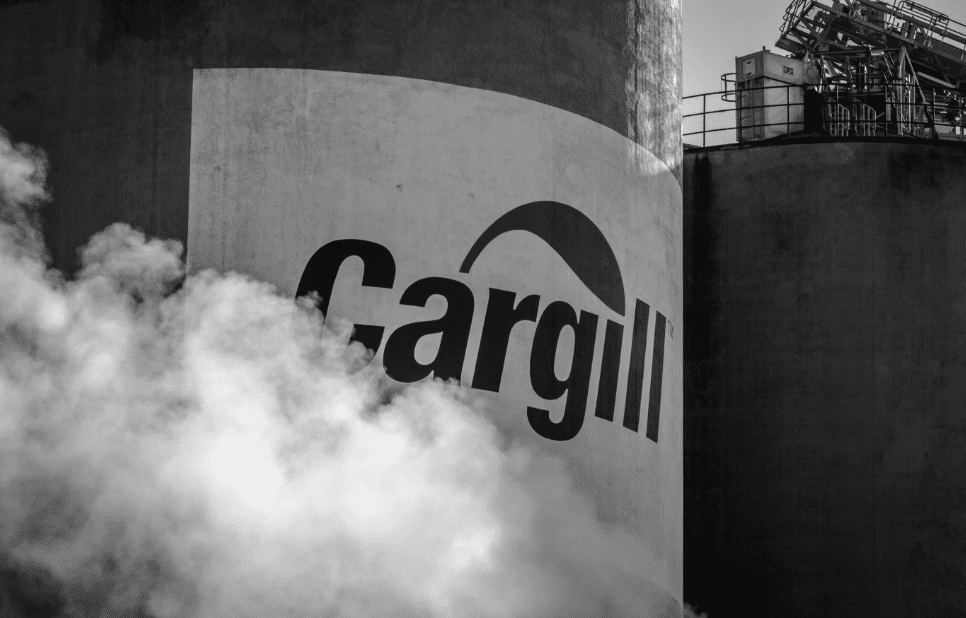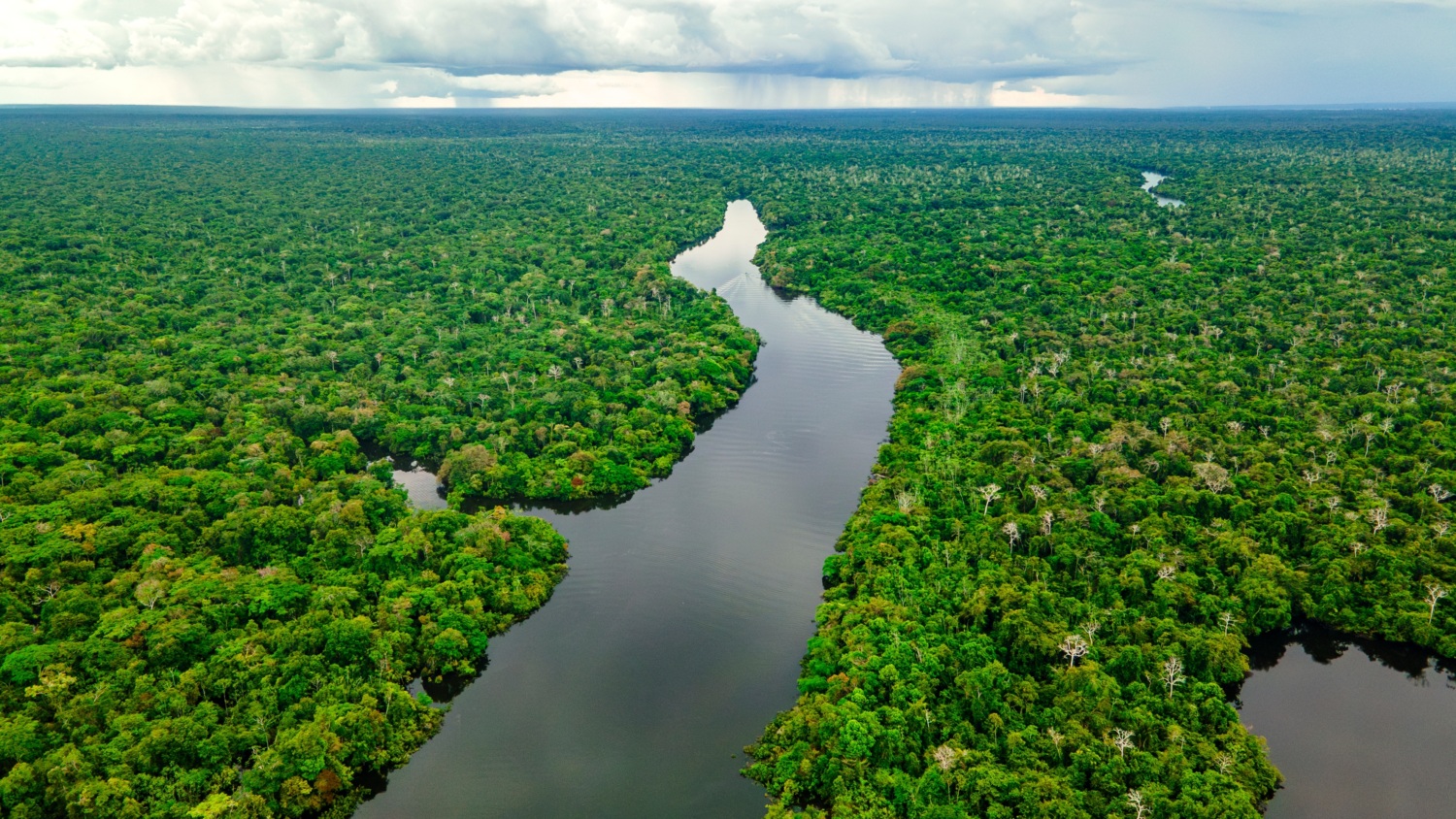
Cargill Named “Worst Company in the World”

Cargill Named “Worst Company in the World”
New report documents US-based agribusiness giant’s “ineptitude and incoherence at a grand scale.”
Read the Report Report Citations This press release is available in French, Spanish, Dutch, Portuguese and German.
July 11, 2019
MINNEAPOLIS, Minn. – Environmental campaign organization Mighty Earth announced today that it had named Minnesota-based Cargill as the “Worst Company in the World” due to its unscrupulous business practices, environmental destruction, and repeated insistence on standing in the way of global progress on sustainability. Mighty Earth’s new report, “Cargill: The Worst Company in the World,” documents decades of bad acts by the company and highlights the need for urgent action. The report is available in Spanish, Dutch, French, Portuguese and German.
“In my 40-year long career in Congress, I took on a range of companies that engaged in abusive practices,” former congressman and Mighty Earth Chairman Henry Waxman writes in the report. “I have seen firsthand the harmful impact of businesses that do not bring their ethics with them to work. But Cargill stands out.”

“As one of the largest companies in the world, Cargill has a responsibility to address its outsized impact,” Mighty Earth CEO Glenn Hurowitz said. “Mighty Earth runs campaigns around the globe to advocate for sustainable business practices, and Cargill kept showing up when our investigations identified bad actors. Whether we were working on palm oil in Southeast Asia, cocoa farming in West Africa, or soy cultivation in South America, Cargill was always there, ready to thwart progress and impede joint conservation efforts. Given their ubiquity and obstinance, we decided it was time to take a closer look at their checkered past.”
For months, Mighty Earth has engaged in discussions with Cargill, including at the CEO level, to address the report’s findings and seek long-term solutions. Mighty Earth has served as a key convener for other sectors – including rubber, chocolate, and palm oil – as those companies sought to improve their environmental standards and impacts. However, Cargill has refused, time and time again, to substantively address the problems Mighty Earth identified. Instead, Cargill continues to prioritize the deforesters in its supply chains over the climate or their customers’ sustainability demands.
“In press releases and public statements, the agribusiness giant Cargill presents itself as frustrated with deforestation, as though it were some externality they have no control over, like bad weather,” Hurowitz said. “But deforestation isn’t something that’s happening to Cargill, it’s something that Cargill is doing.”
Mighty Earth’s new report identifies Ahold Delhaize – an international supermarket giant that owns Stop & Shop, Giant, Food Lion, Hannaford, and many other brands – as a key customer of Cargill that could take immediate action. Ahold Delhaize, despite its own corporate sustainability pledges, recently broke ground on a new meat packaging facility in Rhode Island as a joint venture with Cargill.
“It’s important for Ahold Delhaize and other Cargill customers to set new sourcing standards that eliminate deforestation from their supply chains. They have the power to force Cargill’s hand, but continued inaction makes them complicit in Cargill’s malfeasance,” said Mighty Earth Senior Director for Forests Mat Jacobson. “Cargill has only gotten away with its bad behavior for so long because it is not a consumer-facing brand. But if folks knew the food they get at McDonald’s, Stop & Shop, or Target was destroying the rainforests or had been produced with child slavery, they’d be shocked.”
The release of Mighty Earth’s groundbreaking report kicks-off a multimillion-dollar, multi-year campaign targeting Cargill and its customers that will urge the agribusiness giant to eliminate deforestation and human rights abuses from its supply chain. To launch the campaign, local Mighty Earth activists and allies including Minnesota Clean Water Action honored Cargill for its dubious distinction with a rally outside Cargill headquarters in Minnesota at which it awarded the company a “thumbs down” placard.
About the Report
Major findings:
- Cargill is poised to further wreak havoc on fragile ecosystems in Brazil, taking advantage of President Bolsonaro’s rollback of vital environmental protections. In 2014, Cargill pledged to end deforestation for all commodities in its supply chain by 2020. With just one year left, Cargill has continued to incentivize deforestation, remained one of the worst actors on the world stage, and now stands poised to embrace the dawning of a Bolsonaro-era free-for-all in Brazil’s forests.
- In November 2017, Cargill was fined $10 million by the Commodity Futures Trading Commission for years of deliberately misreporting its trade values – by up to 90 percent – in order to defraud both the government and its trading partners. In October 2018, David Dines, the Cargill executive responsible for these violations, was promoted to Chief Financial Officer.
- Indigenous peoples who depend on forests have had their land encroached upon by Cargill-linked soy plantations in Brazil. They have been forced off of their traditional lands and have experienced sharp increases in cancer, birth defects, miscarriages, and other illnesses linked to pesticides and herbicides used to grow soy – often sprayed by planes directly overhead.
- Cargill is one of the top ten polluters in the US food industry for more than a dozen pollutants, including formaldehyde, lead, asbestos, hydrogen cyanide, and mercury.
Photo and video assets relating to the report and Cargill’s operations across different commodities are available for media.
Contact: Alex Armstrong, [email protected]


